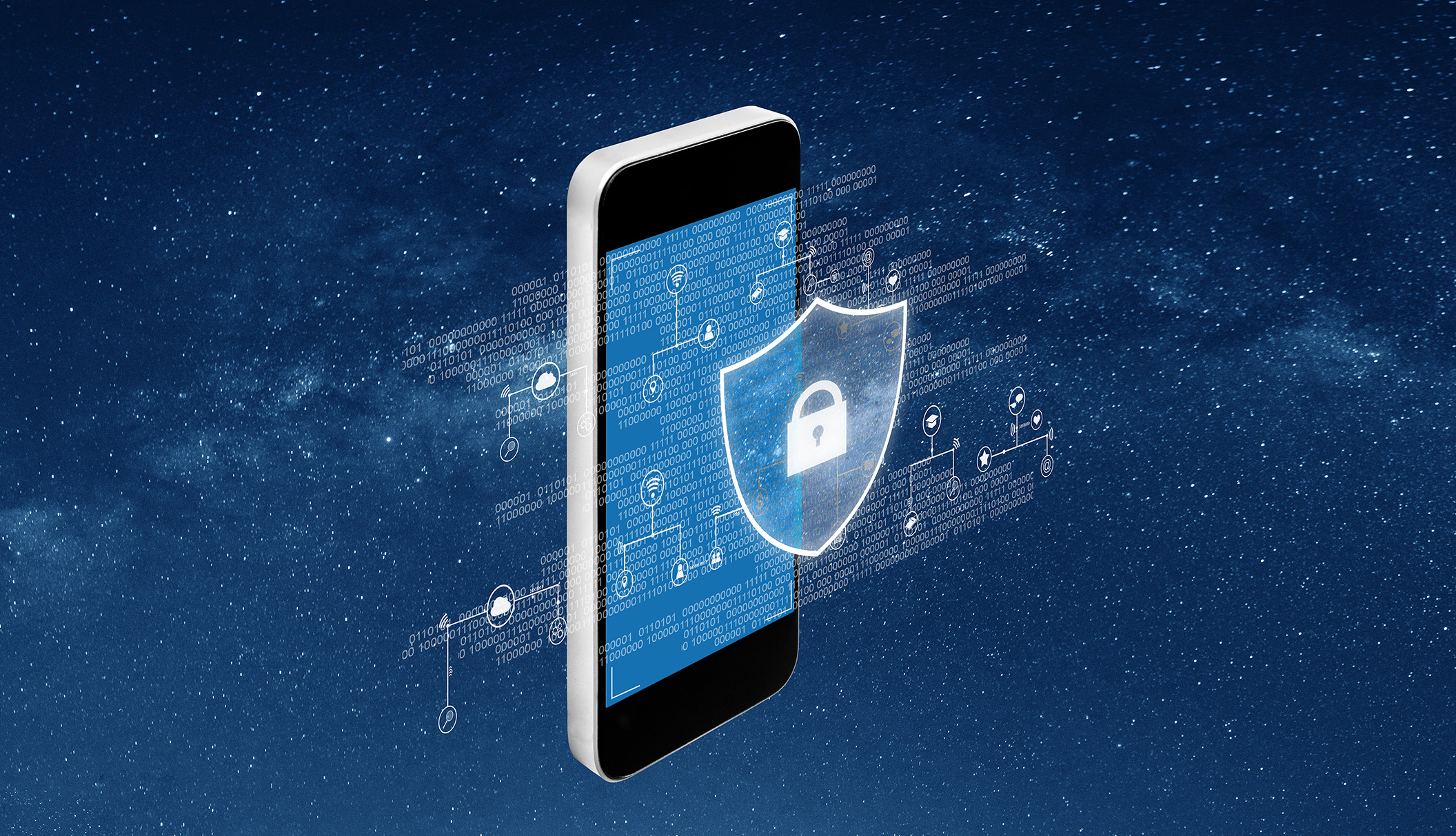Protect Company Network with Mobile Phone Security
When people think of securing devices and minimizing the risk of data breach, they typically think of security for computers, printers, and corporate networks. The red-headed step child of the bunch tend to be mobile phones, which often miss out on critical data security attention. The fact is, mobile phones encounter all the same threats as other electronic equipment. And, of course,, phone security typically isn’t an issue until it really becomes apparent… but by then, it’s usually a much bigger, more complex problem. People usually have one mobile phone for both business and personal use. As a result, this one device is used to download files, store photos, and connect with apps and the internet, to access social media, banking, and even corporate data. All of this means that the mobile phone is a desirable target for hackers. A 2019 Verizon study found that one in three companies had been compromised from a mobile device.
There are four types of mobile security threats that organizations need to be concerned about including:
- Mobile App Threats. Caused by downloading malicious or compromised apps.
- Web-Based Mobile Threats. Originates from phishing emails or text messages.
- Mobile Network Threats. Originates from public, unsecured WiFi connections.
- Mobile Hardware Threat. Caused by lost, stolen, or unattended devices.
So, how do companies protect and secure mobile devices? Sometimes this can be tricky because employees won’t typically turn over their mobile phones for servicing or updates. The IT team has easier access to computers, networks, and servers, but there are ways for the IT team to service and manage mobile devices.
Mobile Device Policies
No matter the size of your organization, Verizon recommends having mobile device policies in place to add to the overall company cyber security policy. These include acceptable use policies, encryption policies, password security policies, and guidelines for technical updates.
Device OS and Apps Updates
Updates include patches for security vulnerabilities in the OS or app. It’s critical to make sure that updates are installed sooner rather than later. Also, it’s very common for companies to allow employees to use/bring their own device (BYOD). For this type of environment, companies must set minimum requirements for personal devices if they’re going to access corporate systems. A good rule of thumb is to update devices every three years to ensure that the security features are up-to-date.
Mobile Device Management
Mobile Device Management (MDM) solutions help small and medium-size companies manage mobile devices throughout the company. Having a central location for mobile device management makes it easy to roll out apps and software to the entire company. Or, if a phone is lost or stolen, MDM provides a simple way to clear data off the phone and wipe it clean. With MDM, employers can also control what apps employees download to phones. This type of solution helps companies with a BYOD program by ensuring that personal phones don’t expose the company network to security threats. Businesses that use Microsoft Office 365 have access to MDM features through Mobile Device Management for Office 365.
VPN Access
Virtual Private Networks (VPNs) offer an extra layer of security and privacy through an encrypted connection and prevent others from watching your online behavior. Remember that a mobile device is only as secure as the network it uses when transmitting data. If a VPN isn’t available, the next best thing is to use your own cellular data if you have access to unlimited data.
Security Training
Educating employees on the ways to identify threats is the best way to minimize security breaches. Malware and phishing are two of the biggest threats to organizations, and neither tactic is device specific. Teaching employees how to spot phishing emails and SMS messages that look suspicious is a company’s best defense against those types of attacks.
Managed Security Provider
Working with a managed security provider can help establish policies, implement MDM solutions, monitor the corporate network for unauthorized activity, and help train employees on how to identify potential threats.
Visual Edge specializes in managed IT services and security, cloud computing, and print/copy solutions for businesses across the U.S., including remote offices. The company has more than 30 years of technology service with a national network of expert engineers. Request your no-obligation assessment today and get a free dark web analysis.





